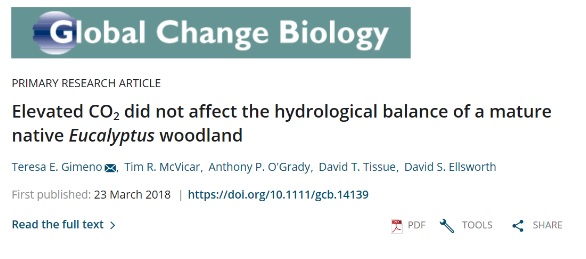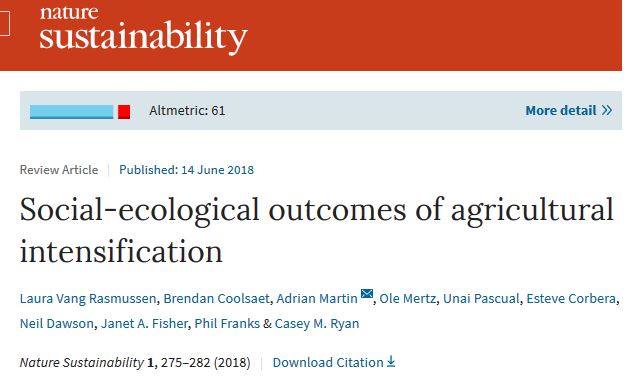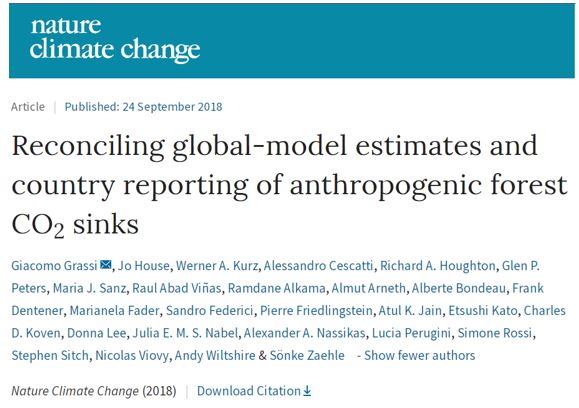May 4, 2018
Published by BC3Research at May 4, 2018
Categories
Elevated atmospheric CO2 concentration might reduce forest water‐use, due to decreased transpiration, following partial stomatal closure, thus enhancing water‐use efficiency and productivity at low water availability. If evapotranspiration is reduced, it may subsequently increase soil water storage or surface runoff and drainage, although these could be offset or even reversed by changes in vegetation structure, mainly increased leaf area index.
Do you like it?
June 15, 2018
Published by BC3Research Unai Pascual at June 15, 2018
Categories
Land-use intensification in agrarian landscapes is seen as a key strategy to simultaneously feed humanity and use ecosystems sustainably, but the conditions that support positive social-ecological outcomes remain poorly documented. We address this knowledge gap by synthesizing research that analyses how agricultural intensification affects both ecosystem services and human well-being in low- and middle-income countries.
Do you like it?
June 21, 2018
Published by BC3Research Aline Chiabai Marc Neumann at June 21, 2018
Categories
The study aims to explore the main drivers influencing the economic appraisal of heat warning systems by integrating epidemiological modelling and benefit-cost analysis. To shed insights on heat wave mortality valuation, we consider three valuation schemes: (i) a traditional one, where the value of a statistical life (VSL) is applied to both displaced and premature mortality; (ii) an intermediate one, with VSL applied for premature mortality and value of a life year (VOLY) for displaced mortality; and (iii) a conservative one, where both premature and displaced mortality are quantified in terms of loss of life expectancy, and then valued using the VOLY approach. When applying these three schemes to Madrid (Spain), we obtain a benefit-cost ratio varying from 12 to 3700
Do you like it?
September 26, 2018
Published by BC3Research Maria Jose Sanz at September 26, 2018
Categories
Achieving the long-term temperature goal of the Paris Agreement requires forest-based mitigation. Collective progress towards this goal will be assessed by the Paris Agreement’s Global stocktake. At present, there is a discrepancy of about 4 GtCO2 yr−1 in global anthropogenic net land-use emissions between global models (reflected in IPCC assessment reports) and aggregated national GHG inventories (under the UNFCCC). We show that a substantial part of this discrepancy (about 3.2 GtCO2 yr−1) can be explained by conceptual differences in anthropogenic forest sink estimation, related to the representation of environmental change impacts and the areas considered as managed.
Do you like it?




